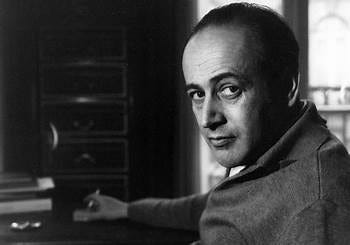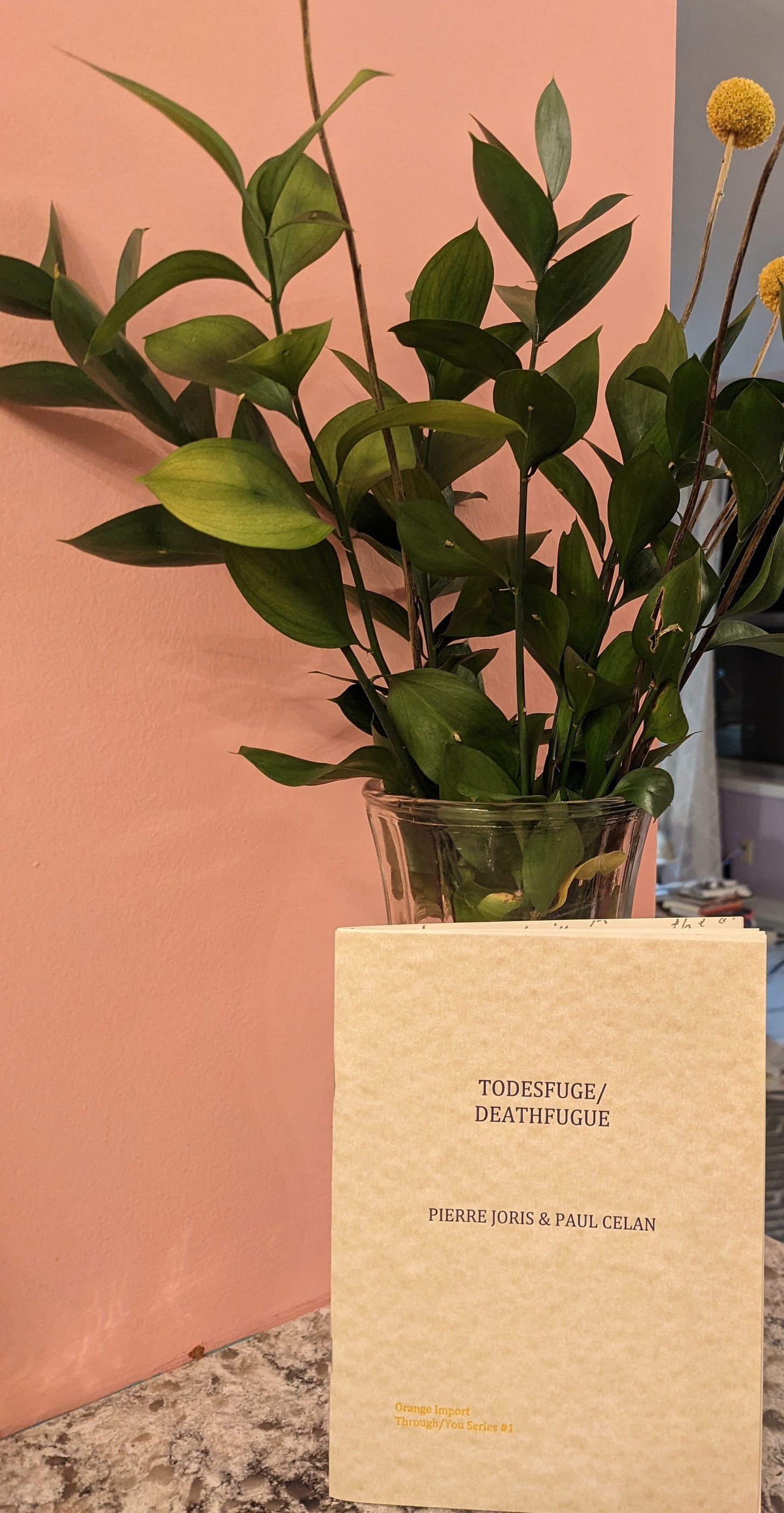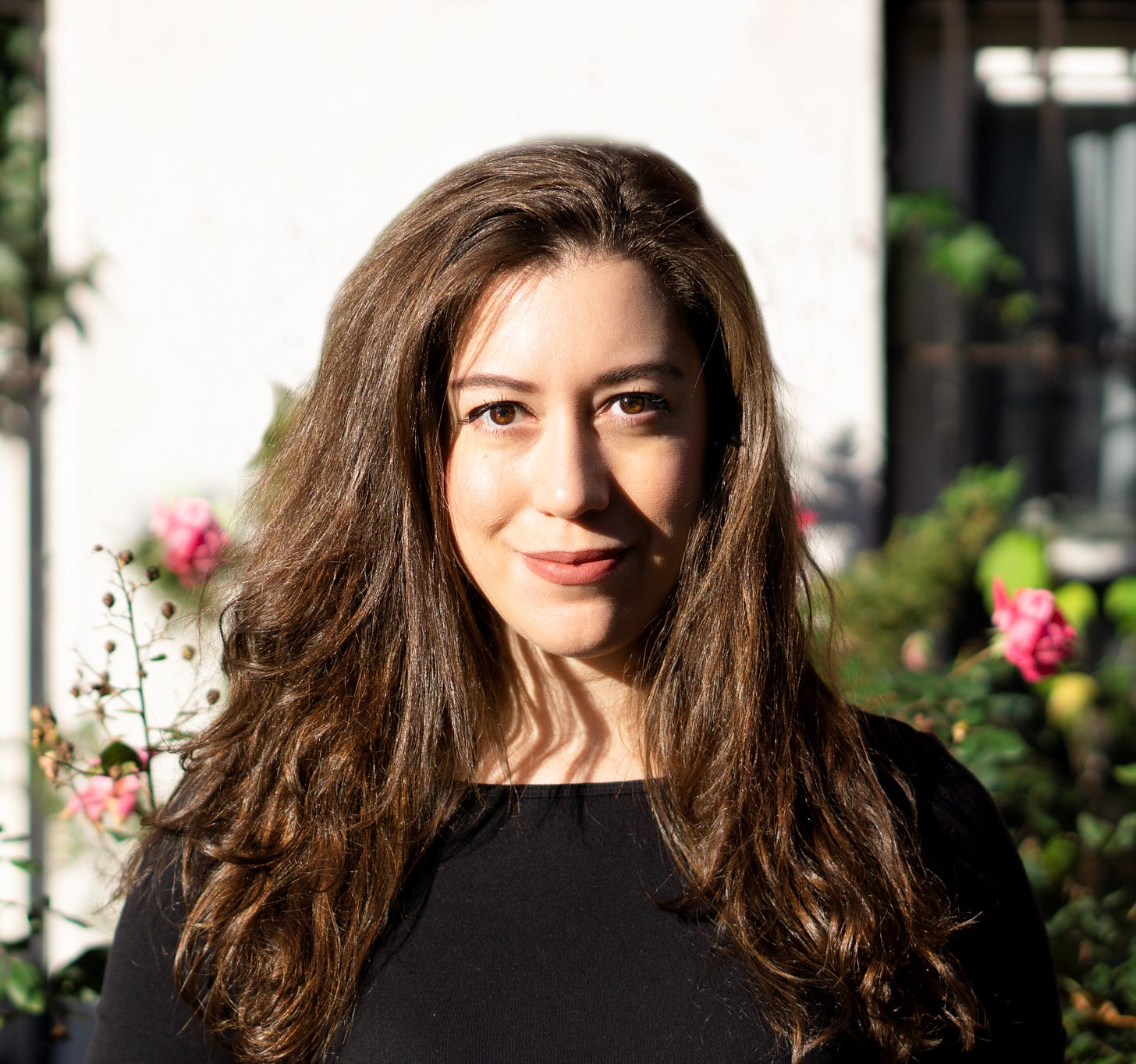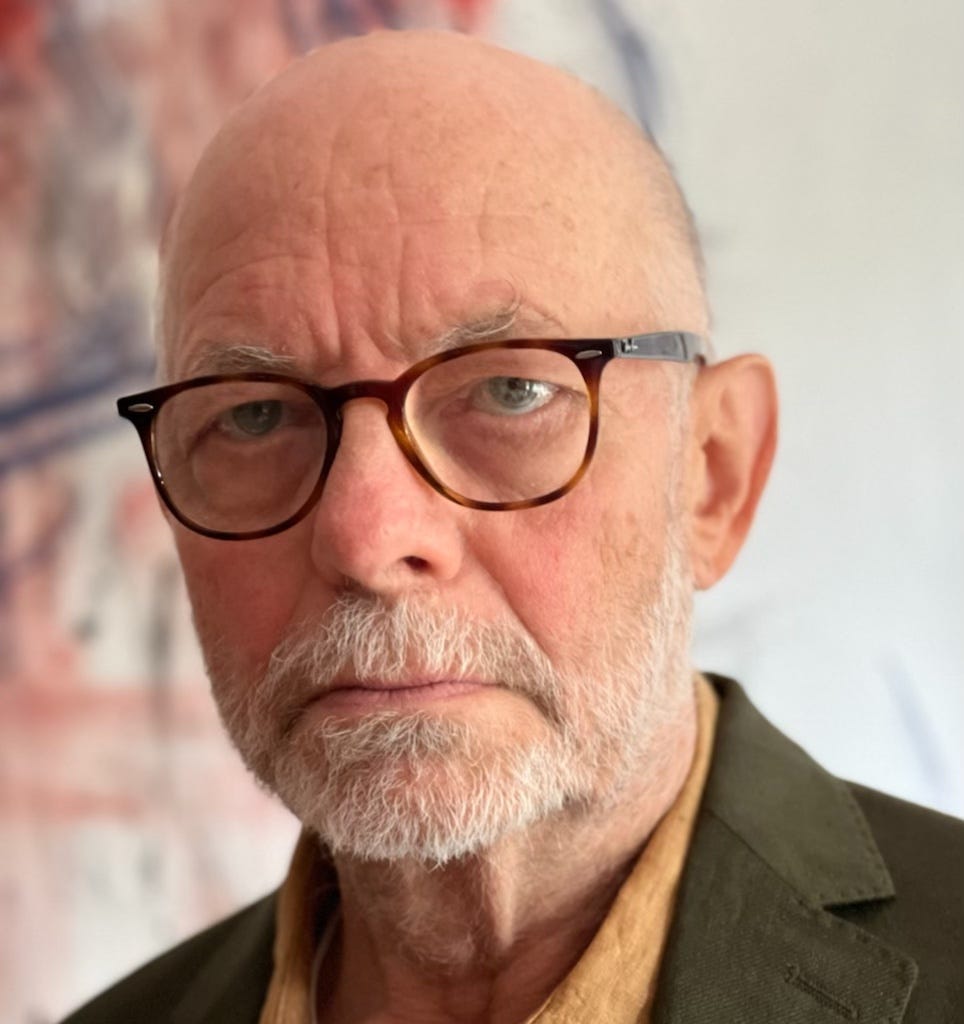In honor of this Sunday’s winter salon on Paul Celan and the translation of his most famous poem, I have been collecting Celan resources to get into the Celan frame of mind. For me, Celan and rereading go together because there are always more layers of meaning to uncover with his work—which to my eye is about meaning itself.
Paul Celan, looking back at all of us.
I look forward to discussing these layers with acclaimed translator Pierre Joris, who has spent decades translating Celan, and poet and editor Carlie Hoffman, who just won the National Jewish Book Award in Poetry, this Sunday at 12 noon CST via Zoom, in a special event for paid subscribers in conjunction with the release of an incredible limited-edition chapbook devoted to this single unforgettable poem—and its journey from German to English. Sign-up details at the end of this newsletter.
My prized copy of this Celan chapbook—one of just 200 copies—from Small Orange Editions.
Part of getting into Celan mode is considering how much Celan meant to others. Elie Wiesel considered Celan one of “the greatest and most moving Jewish poets of our turbulent time.” Nelly Sachs viewed Celan as a “brother,” and you can feel that—her sense of familial closeness—in her letters. I wrote about the extraordinary correspondence between Celan and Sachs in an earlier newsletter, and I recommend their letters to everyone. A Cure For Writer’s Block in Celan’s Letters (substack.com)
I also recommend the fantastic book critic Ruth Franklin to everyone. Her essay “How Celan Reconceived Language for a Post-Holocaust World” brings the reader into her “mystical” experience encountering Celan in translation. How Paul Celan Reconceived Language for a Post-Holocaust World | The New Yorker
And while I am at it, and thinking of both Wiesel and Celan, and the lives and afterlives of Holocaust survivors, Ruth’s important essays about the new Ken Burns Holocaust documentary—“The Millions We Failed To Save”—as well as her critical piece “The Lucky Ones,” about the 250,000 Polish Jews who survived Hitler by falling into Stalin’s clutches, including her own grandparents, who barely survived the war in Siberia, are a must. Ruth Franklin | The New York Review of Books (nybooks.com)
I unexpectedly found myself reading Ruth’s take on Ken Burns, and America’s conduct during the Holocaust, just before going to see the Holocaust memorial in sunny San Juan, Puerto Rico—a location far from Celan’s Europe. I wrote about that moving, bilingual memorial for The Forward. Why Puerto Rico's Holocaust memorial matters – The Forward
But let’s return to Celan. All his poetry is a form of memorial. And all his poetry is a form of life.
A young Paul Celan. He wrote Todesfugue (“Deathfugue”) when he was just 24.
How can any mortal approach Celan? I think one way, for those of us who are not fluent in German, is to read many translations. I always recommend reading multiple translations, especially of essential texts like the Book of Genesis or the Book of Isaiah or –well, the Book of Celan, which can begin with “Deathfugue.” Here is the translation by Pierre Joris, who I am honored to host on Sunday. I recommend reading it in advance: Death Fugue by Paul Celan - Poems | Academy of American Poets
If you have a bit more time, I also often recommend John Felstiner’s wonderful and haunting biography of Celan, Poet, Survivor, Jew. Felstiner translated Celan, too. For the same poem in John Felstiner’s translation and Christopher Middleton’s translation, click here: 5: Poem, Paul Celan’s “Todesfuge” in English translation, by Christopher Middleton, 1962, and John Felstiner, 1995. | The Yiddish Book Center’s Great Jewish Books Teacher Resources (teachgreatjewishbooks.org)
And maybe that’s enough of a cheat sheet for now! In case you missed it, I wrote a newsletter post on the new Celan chapbook, and you can read it here: Celan's Masterpiece in Chapbook Form - by Aviya Kushner (substack.com)
Winter Salon on Celan—Details!
I always feel a special bond with those who are immersed in Celan. This wonderful chapbook on Celan’s most famous poem is the brainchild of poet and editor Carlie Hoffman, and it was made possible by award-winning translator Pierre Joris. I’m so honored and delighted to host both this Sunday in a special winter salon at 12 noon EST.
Carlie Hoffman is the author of When There Was Light (Four Way Books, 2023), winner of the National Jewish Book Award and This Alaska (Four Way Books, 2021), winner of the Northern California Publishers & Authors Gold Award in poetry and a finalist for the Foreword Indies Book of the Year Award. She is the translator of White Shadows: Anneliese Hager and the Camera-less Photograph (Atelier Éditions, 2023) and Selma Meerbaum Eisinger's Blütenlese (forthcoming with Hanging Loose Press). Her honors include a 92Y "Discovery" / Boston Review Poetry Prize, a Poets & Writers Amy Award, and the Loose Translation Prize and her work has been published in POETRY Magazine, Los Angeles Review of Books, Kenyon Review, Jewish Currents, The Slowdown, Columbia Journal, New England Review, and elsewhere. Carlie is the founding editor and Editor in Chief of Small Orange Journal.
Carlie Hoffman, editor of this wonderful Celan chapbook, and recent winner of The National Jewish Book Award for Poetry.
Pierre Joris has moved between Europe, the US & North Africa for 55 years, publishing over 80 books of poetry, essays, translations & anthologies — most recently Todesfuge / Deathfugue Pierre Joris & Paul Celan (Small Orange Import, 2024), Interglacial Narrows (Poems 1915-2021) & Always the Many, Never the One: Conversations In-between, with Florent Toniello, both from Contra Mundum Press. In 2020 his two final volumes of Paul Celan translations came out: Memory Rose into Threshold Speech: The Collected Earlier Poetry (FSG) & Microliths They are, Little Stones: Posthumous Prose (CMP). In 2019 Spuyten Duyvil published Arabia (not so) Deserta (Essays on Maghrebi & Mashreqi literature). Other recent works include A City Full of Voices: Essays on the Work of Robert Kelly (co-edited with P. Cockelbergh & J. Newberger, CMP, 2020), earlier: Conversations in the Pyrenees with Adonis (CMP 2018) & The Book of U (poems, with Nicole Peyrafitte, Simoncini 2017). He lives in Bay Ridge, Brooklyn, with his wife, pluridisciplinary artist Nicole Peyrafitte.
Answering Questions from Subscribers
It’s been wonderful hearing from so many subscribers to this newsletter! And yes, I am drowning in email, so I want to answer some of the most common questions I receive—namely, what was the inspiration for this newsletter? Is this free? What do I get as a paid subscriber?
I am writing this weekly dispatch (at least I am trying for weekly!) to highlight writers, translators, and thinkers who I think deserve more attention. I spotlight beautiful work that we otherwise might not know about or that is often ignored by larger publications—such as limited-edition chapbooks; Jewish poetry from around the world; literature from prior eras that has new or deeper meaning now; writing in translation; and prayer as poetry and song. My hope is to recreate the dining-room table of my childhood, where ancient languages and present concerns lived, in a raucous, multi-layered, and multi-lingual conversation. I invite you to join in.
My deeper hope is to build a community around books and ideas that matter, and to rebel against the tyranny of timeliness. I think social media can make literary culture too dependent on the “latest” and “newest,” and perhaps, the “most strident,” and it leaves me craving the ancient. On Being and Timelessness strives to make space for the timeless and the eternal. Paul Celan, to me, is an eternal poet. Dovid Bergelson’s stories of Berlin are also, to my eye, eternal. So, too, is my favorite prayer, which I wrote about as Rosh Hashanah and Yom Kippur approached—ochila la’el.
I write and teach for a living. I hope to keep some or most of this newsletter free going forward, because I was that young woman who could not afford to subscribe to everything I wanted to read, and because I believe reading is necessary. Paid subscribers make it possible to sustain and expand this endeavor, and I want to thank you! I am hosting monthly salons on Zoom exclusively for paid subscribers where you can meet the writers, translators, and thinkers spotlighted in the newsletter, and get a deeper take on a fascinating subject.
I will be adding additional features for paid subscribers, such as an inside look at a class I am teaching on writing about place and home; audio and video; and in-person poetry coffees in several cities. Want to co-host a poetry coffee with me in your city? Please be in touch.
If you are enjoying this newsletter and want to support it, and if you would like to join the winter salon on Paul Celan, and have not signed on yet, do consider a monthly or annual paid subscription, for yourself or as a gift. Invites will go out tonight to paid subscribers with Zoom link info, and I will send an invite to new paid subscribers who sign up between now and 11:30 EST this Sunday.
Last but not least, if you happen to be a writer who would like a listening ear, I also offer “Discuss Any Writing Topic” Zoom sessions for founding subscribers. All sessions are totally confidential and are a private space to talk things out. As always, I want to thank you for all your help helping this newsletter grow—sharing this newsletter, commenting on posts, and recommending On Being and Timelessness. I also love getting your personal emails on books and chapbooks you read because of this newsletter, or writers and thinkers you discovered or re-discovered.
It makes me happy to know that a poet I admire is reading Dovid Bergelson, that a politician interested in water issues is reading Dina Elenbogen’s Shore, and that libraries all over the world are getting requests for books by writers, translators, and thinkers who should be more widely read. It’s all wonderful & deeply appreciated, and it makes me think poets like Celan will always have readers who appreciate the eternal. Thank you so much, readers!
**********************************************************************************************************
Hope you enjoyed this newsletter! Thank you for your support of writing with depth.









It just astonishes me whenever I think about how young he was when he wrote Todesfugue.